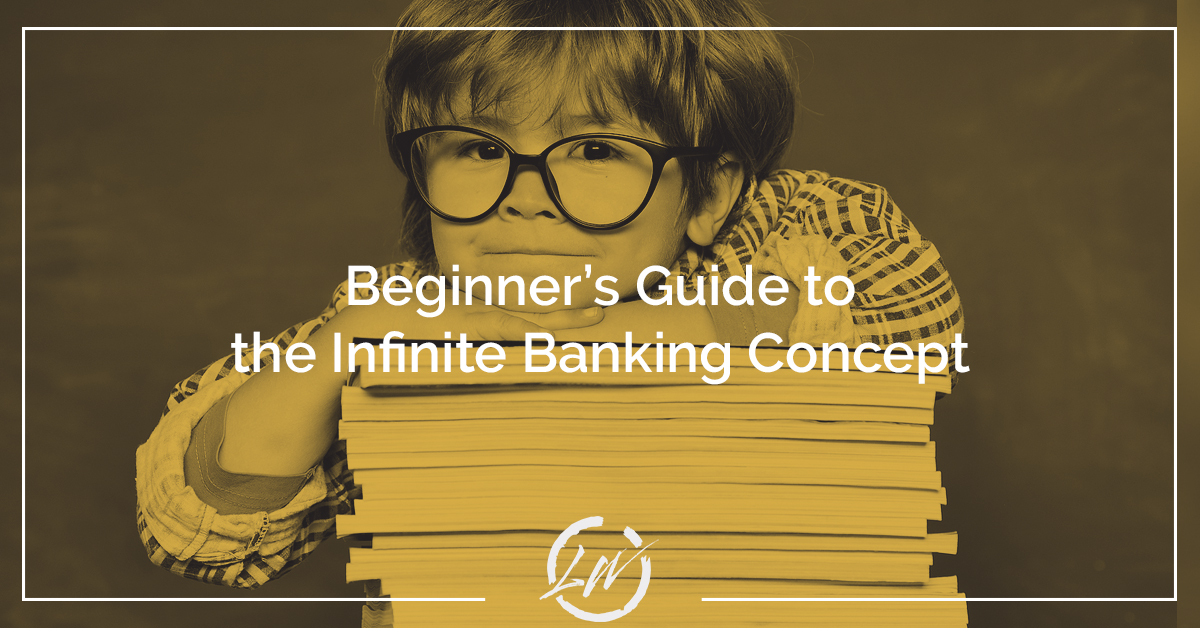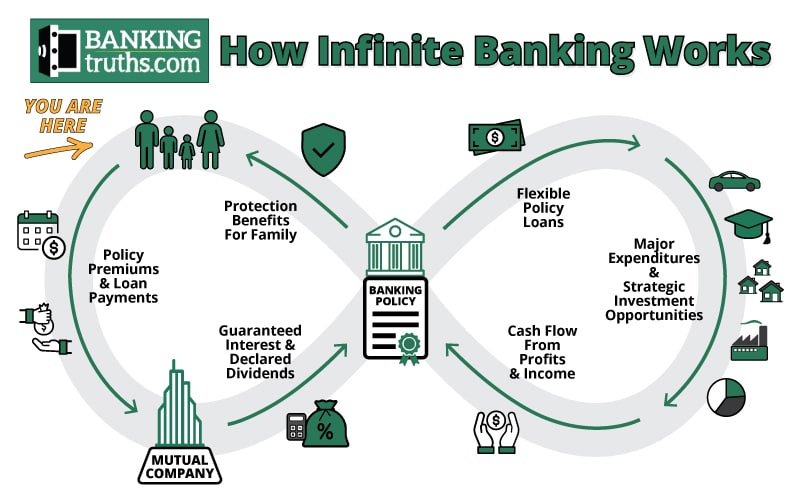All Categories
Featured
Table of Contents
Okay, to be fair you're really "banking with an insurance coverage business" instead than "financial on yourself", but that principle is not as very easy to offer. It's a little bit like the concept of getting a home with cash money, after that obtaining versus the house and placing the money to work in an additional financial investment.
Some people like to discuss the "speed of money", which essentially indicates the very same thing. In truth, you are simply maximizing take advantage of, which functions, but, certainly, functions both methods. Honestly, all of these terms are scams, as you will see listed below. That does not imply there is absolutely nothing worthwhile to this concept once you obtain past the marketing.
The entire life insurance policy industry is afflicted by overly pricey insurance policy, enormous compensations, questionable sales methods, low rates of return, and badly informed customers and salesmen. However if you intend to "Rely on Yourself", you're mosting likely to need to fall to this market and actually purchase whole life insurance policy. There is no replacement.
The assurances intrinsic in this product are essential to its function. You can obtain against a lot of kinds of cash money worth life insurance policy, yet you shouldn't "bank" with them. As you acquire an entire life insurance coverage policy to "financial institution" with, keep in mind that this is an entirely separate area of your financial plan from the life insurance policy area.
As you will certainly see below, your "Infinite Banking" policy actually is not going to reliably supply this essential monetary function. An additional problem with the fact that IB/BOY/LEAP depends, at its core, on a whole life plan is that it can make purchasing a policy bothersome for several of those interested in doing so.
Can You Create Your Own Bank
Hazardous hobbies such as diving, rock climbing, sky diving, or flying additionally do not blend well with life insurance policy products. The IB/BOY/LEAP supporters (salesmen?) have a workaround for youbuy the plan on someone else! That may function out great, because the point of the plan is not the death advantage, however bear in mind that acquiring a plan on minor children is a lot more pricey than it needs to be because they are typically underwritten at a "common" rate rather than a liked one.

A lot of policies are structured to do one of 2 points. The payment on a whole life insurance coverage policy is 50-110% of the initial year's costs. Often policies are structured to maximize the death advantage for the premiums paid.
The price of return on the policy is very crucial. One of the finest methods to make the most of that factor is to obtain as much cash money as feasible right into the plan.
The very best means to enhance the rate of return of a plan is to have a reasonably small "base policy", and after that placed more money right into it with "paid-up enhancements". Rather than asking "Exactly how little can I place in to get a particular survivor benefit?" the concern becomes "How a lot can I lawfully took into the policy?" With even more money in the plan, there is even more cash worth left after the prices of the survivor benefit are paid.
A fringe benefit of a paid-up addition over a regular premium is that the commission rate is lower (like 3-4% rather than 50-110%) on paid-up enhancements than the base plan. The much less you pay in payment, the greater your rate of return. The price of return on your money worth is still mosting likely to be negative for a while, like all cash money worth insurance policies.
The majority of insurance coverage companies just use "direct acknowledgment" fundings. With a straight recognition lending, if you borrow out $50K, the dividend price used to the cash worth each year just uses to the $150K left in the plan.
Using Your Life Insurance As A Bank
With a non-direct acknowledgment loan, the firm still pays the same dividend, whether you have actually "obtained the money out" (technically versus) the policy or not. Crazy? Why would certainly they do that? That recognizes? However they do. Commonly this attribute is paired with some less beneficial facet of the policy, such as a reduced dividend price than you might receive from a plan with straight acknowledgment lendings (infinite banking concept book).
The companies do not have a resource of magic complimentary cash, so what they give in one area in the policy should be extracted from another place. However if it is extracted from a function you care less around and take into a function you care more around, that is an advantage for you.
There is one even more crucial attribute, usually called "clean financings". While it is great to still have actually returns paid on money you have actually taken out of the policy, you still need to pay rate of interest on that particular funding. If the reward rate is 4% and the car loan is billing 8%, you're not precisely coming out in advance.
With a clean finance, your loan passion rate is the exact same as the returns price on the policy. So while you are paying 5% passion on the loan, that interest is totally balanced out by the 5% reward on the financing. So in that respect, it acts similar to you took out the cash from a checking account.

5%-5% = 0%-0%. Same exact same. Therefore, you are currently "financial on yourself." Without all 3 of these factors, this policy merely is not going to function very well for IB/BOY/LEAP. The greatest problem with IB/BOY/LEAP is individuals pressing it. Almost all of them stand to benefit from you purchasing right into this idea.
Actually, there are numerous insurance agents speaking about IB/BOY/LEAP as a function of entire life who are not actually marketing plans with the essential functions to do it! The problem is that those who know the principle best have a substantial conflict of rate of interest and typically inflate the advantages of the idea (and the underlying policy).
Infinite Banking To Pay Off Debt
You need to contrast borrowing versus your policy to withdrawing money from your cost savings account. No money in money value life insurance. You can place the money in the bank, you can spend it, or you can purchase an IB/BOY/LEAP policy.
It grows as the account pays rate of interest. You pay tax obligations on the interest each year. When it comes time to get the watercraft, you take out the cash and get the watercraft. Then you can conserve some more money and placed it back in the financial account to start to make passion again.
When it comes time to get the watercraft, you market the financial investment and pay taxes on your lengthy term resources gains. You can save some more cash and buy some even more investments.
The cash money worth not utilized to spend for insurance policy and compensations expands over the years at the returns price without tax obligation drag. It starts with adverse returns, but with any luck by year 5 or two has recovered cost and is expanding at the returns rate. When you most likely to get the watercraft, you borrow against the policy tax-free.
Non Direct Recognition Whole Life Insurance
As you pay it back, the money you repaid starts expanding again at the reward price. Those all work quite similarly and you can contrast the after-tax rates of return. The fourth option, nevertheless, works really differently. You do not conserve any kind of cash nor get any type of kind of financial investment for years.
They run your credit score and offer you a funding. You pay passion on the obtained money to the bank till the lending is repaid. When it is paid off, you have a nearly useless boat and no money. As you can see, that is nothing like the very first 3 choices.
Table of Contents
Latest Posts
Life Rich Banking
How To Become Your Own Bank
How To Make Your Own Bank
More
Latest Posts
Life Rich Banking
How To Become Your Own Bank
How To Make Your Own Bank